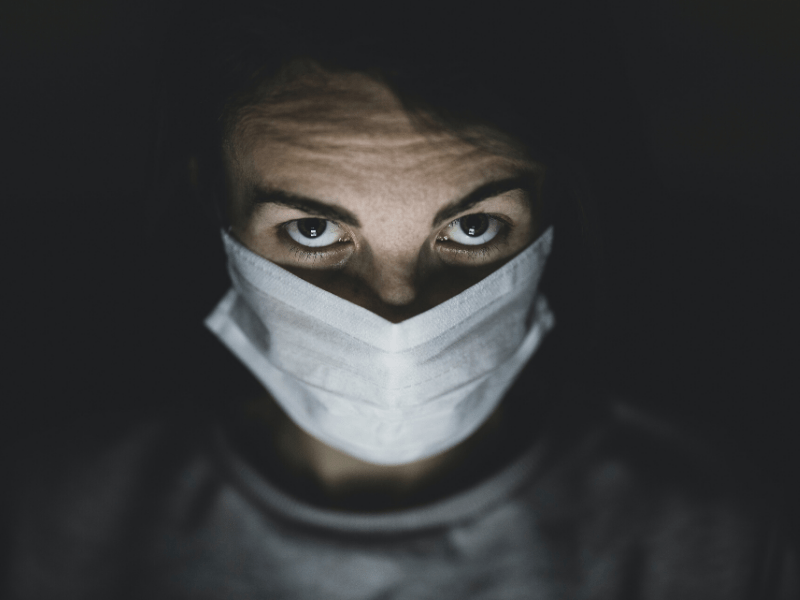The COVID-19 pandemic has brought a widespread sense of exhaustion.
We’re tired of battling an invisible enemy. Do we hide inside our homes for another year? Is it really so bad if I go out and have a drink?
There’s a constant hum of information noise coming from all directions. Go and enjoy summer… We’re shutting down bars… We’re re-opening bars… You can go to a wedding… You can go to a wedding, but you have to sit down…
What about my income? How do I pay my mortgage?
It’s entirely reasonable to snap, but this is a crucial moment. We need to hold our nerve and assess the situation.
In this series, we’ll explore some of the issues we’re dealing with.
Let’s start with an overview of the disease.
COVID-19 is a worldwide problem. We speak of it almost as if it’s an independent entity that has its own thoughts. But what do we know for sure?
COVID-19 is part of a large family of viruses. Other family members include Middle East respiratory syndrome (MERS) and Severe Acute Respiratory Syndrome (SARS). This group of viruses also includes SARS-CoV. We’re currently dealing with SARS-CoV 2, which causes the COVID-19 disease.
If you’re confused by that, you’re not alone.
Think of viruses as a large family gathering. SARS-CoV 2 is that branch of the family that has a number of troublesome children, one of them is SARS-CoV 2, and its contribution to the party is COVID-19.
So how did SARS-CoV 2 join the party? This is not yet clear. We’ve all read stories about bats in China, but the truth is that the source is not yet known.
Does this mean we know nothing? Not quite.
We know it’s transmitted between people through respiratory droplets. We know it spreads very quickly, and we know there are a range of symptoms. We also know that some people are asymptomatic — they have the virus but show no symptoms. We don’t yet know why this is, but we do know that asymptomatic people can transmit the virus.
Curing a virus is not straightforward. At best, we find a vaccine. Vaccines train the body’s immune system to fight a disease. But remember, a vaccine is designed to prevent disease. It doesn’t cure a disease you already have.
That’s why we need to focus on prevention.
For those who already have the disease, the only option right now is to manage it. Management depends on the severity of symptoms.
At the more extreme end, this includes being put on a ventilator. This is not the type of oxygen mask one frequently sees on TV. A ventilator is what you end up with when your body cannot breathe or get enough oxygen in your blood. The machine takes over the function of breathing, because you cannot.
Some ventilators involve a mask or helmet that transmits oxygen from the machine to your lungs. However, with COVID-19, patients need a different type of machine. That one involves inserting a tube through your mouth or nose. If things are really bad, the tube is inserted via your neck.
It’s not a pleasant experience. It requires a number of medical personnel to constantly monitor you. But it will keep you alive. You’ll generally be fed via a drip or feeding tube while you’re connected to it.
The machine saves your life, but it also carries risks. There’s a major risk of pneumonia (which is particularly bad if you also have COVID-19). Depending on your other medical conditions, you may also be at risk of other things including blood clots, muscle weakness and so much more.
Human bodies are complicated, and while machines such as ventilators are vital, they can’t cope with all the complexities of a human body.
If you wind up in hospital with COVID-19 and you require a ventilator, your experience and your chances of recovery will depend on your general health.
If you’re older, if your immune system is compromised, or if you have other medical issues, then things will get complicated. That’s why the Health Minister mandated isolation for older people, insulin-dependent diabetics, pregnant women, and cancer patients during the first lockdown.
COVID-19 needs to be prevented, and isolation remains one of the best ways to do that. We’ll explore this topic further in this series.
For now, here are some key points from the World Health Organization.
It’s natural to seek reassurance and information when confronted with a pandemic. The situation is distressing. Feeling anxious is normal. But it’s also important to keep focus.
Here are a few things to bear in mind:
- You can’t take antibiotics to cure COVID-19. Antibiotics only treat bacterial infections, not viruses.
- There are no licensed pills that will rid your body of COVID-19. All we can do is manage symptoms. It may be tempting to rely on traditional remedies (garlic, ginger etc.) but while these are tasty, there’s absolutely no evidence that they can get rid of a virus. Enjoy your garlic, but maintain distance and take all possible precautions, because you could still transmit or receive the virus.
- Sunbathing does not prevent COVID-19. Continue to wear sunscreen because you don’t want to risk skin cancer at this or any other time.
Anyone can get COVID-19.
Right now we need to keep washing our hands, wiping down surfaces and keeping physical distance.
Wear a mask when you go out. Sure, it gets uncomfortable — especially on a hot day. Deal with it. It sounds harsh, but the alternative is much harsher.
If you can’t deal with it, if wearing a mask triggers anxiety, then you need to stay inside because you are at risk, and you put others at risk. It may feel like you can’t breathe properly, but rest assured that wearing a mask will not reduce your supply of oxygen.
In the next article in this series, we’ll take a closer look at your immune system and how it fights off viral threats.













